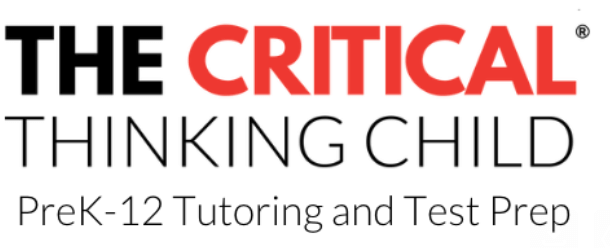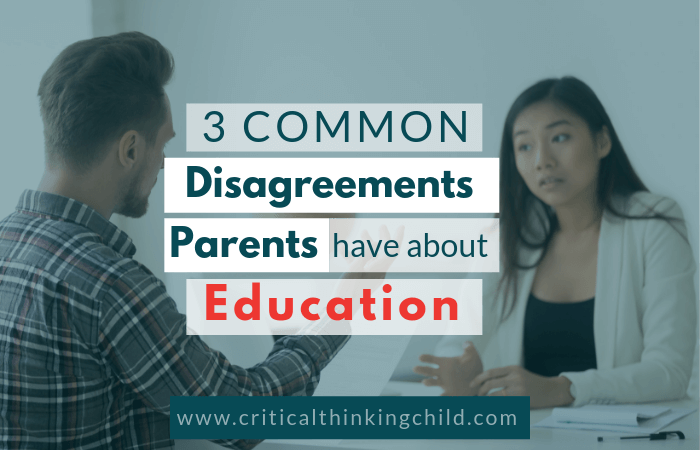As a parent, you play an invaluable role in the education of your child. You are your child’s first and most esteemed teacher. Even if you haven’t given it much thought, you bring your own unique teaching style to the table – whether you’ve received formal training as an educator or not. And odds are, you’re approaching education a little differently from the other adults in your child’s life.
Often, this becomes painfully clear when a major milestone, like choosing a school, approaches. Disagreements can arise around any number of topics, from helping with homework to enrolling in academic success programs. Disagreements around the best way to support a child’s education can and will happen, whether it’s between married parents, co-parenting parents, divorced parents, or any other adult relationship where there are multiple people invested in your child’s education.
Here are some common areas of disagreement and tips on how to navigate these messy waters.
Situation #1: Deciding On Your Child’s School
What usually happens: When brainstorming school options for their children, parents often reflect back on their own childhood learning experiences. They use these past experiences to inform their decisions when it comes to educating their own kids, taking note of what they liked and didn’t like.
The type of school to enroll your child in can be an overwhelming discussion. There are so many available options: homeschooling, public schools, private schools, gifted programs, online programs, etc. Since parents often base their decision off their own experiences, these conversations tend to be emotionally charged, with each partner deeply entrenched in their own positions.
What you can do: It’s always best to proactively talk about the available options before they become a problem. Share your own educational experiences – the good, the bad, and the ugly – and listen to the experiences of your child’s other parent. Talk about what you liked and disliked in your own experiences and what your child seems drawn to.
Although it’s difficult, each partner should be prepared to discuss the pros and cons of their positions and approach their children’s learning journey as a new adventure, rather than just extensions of their own past experiences. The earlier you can come to an agreement about the type of schooling to pursue, the better. Aim to have this conversation before kindergarten, if possible. In fact, we’ve developed a resource to help you choose your child’s preschool in the most stress-free way possible.
Situation #2: Offering Homework Help
What usually happens: How hands-on do parents need to be to ensure their child is successful? Again, parents approach homework through the lens of their own childhood experiences. Some parents take a backseat, while others feel that they must remain actively involved every step of the way.
Parents also may experience conflict over what learning looks like. Some take a soft approach, incorporating games and roleplay and interactive experiences, while others believe in more structured work. Each of these perspectives are informed by the parent’s own history and feelings. These issues may feel like a stalemate with no compromise in sight.
What you can do: Instead of arguing about subjective ideas, like how intensely you will support your child or how hard you will be on them, come to an agreement about how much time you will spend supporting your child. For example, spending a few dedicated minutes each day helping your child master one new skill can have a huge impact.
This is also a great opportunity to involve your child in their learning. Work with them to uncover their learning preferences, so you and your partner can develop homework strategies that fit their needs. Remember, the more involved your child is, the more they’ll feel invested in their learning.
Situation #3: Parent Engagement
What usually happens: Some parents recall heavy parent engagement in their own childhoods; their parents were at the PTA meetings and served as classroom volunteers and field trip chaperones. Other parents were more hands off, whether it was due to work schedule, other children’s needs, or lack of knowledge of the system.
Depending on your own experience with parental involvement, you may approach involvement in your own child’s education a certain way. The same is true for any other adults helping your child make sound academic decisions. Were they embarrassed that their parents were at their school all the time? Were they ashamed that their parents were never engaged at school?
You may find your efforts met with criticism if your own experiences and ideas don’t match up to the other adults involved. In addition to the level of engagement, parents may also disagree about how best to engage: some may challenge the teacher while others always side with the teacher, and some parents may want to use traditional teaching tools while others prefer modern, high tech materials.
What you can do: Pick your battles! Support your child as you are able, and remain compassionate around your partner’s experiences. Their opinions are shaped by their own childhood experiences and may provide a different approach. Because of this, it’s helpful to gather outside opinions. Talk with your child’s teacher and your child about what they feel would be most beneficial.
Above all, stay engaged. Even if your version of engagement looks different from your partner’s, you can help your child succeed. When you and your partner work together, you can create a combination of routines and habits that make sense for both of you – and your child.
Stay Adaptable, Present, and Communicative
The adults involved in your child’s life – yourself included – want what’s best for your child. Even if you have different ideas of what that looks like, you can meet at that common goal and work from there. It may involve compromise, and it may mean that your child’s educational path looks different from your own. Remember to include your child in these conversations when appropriate to make sure that the decisions you make have the most positive impact possible.
Stay attuned to your child’s interests and skills and plan accordingly, and always remember that your child’s education is a journey, all the way from birth until college.



